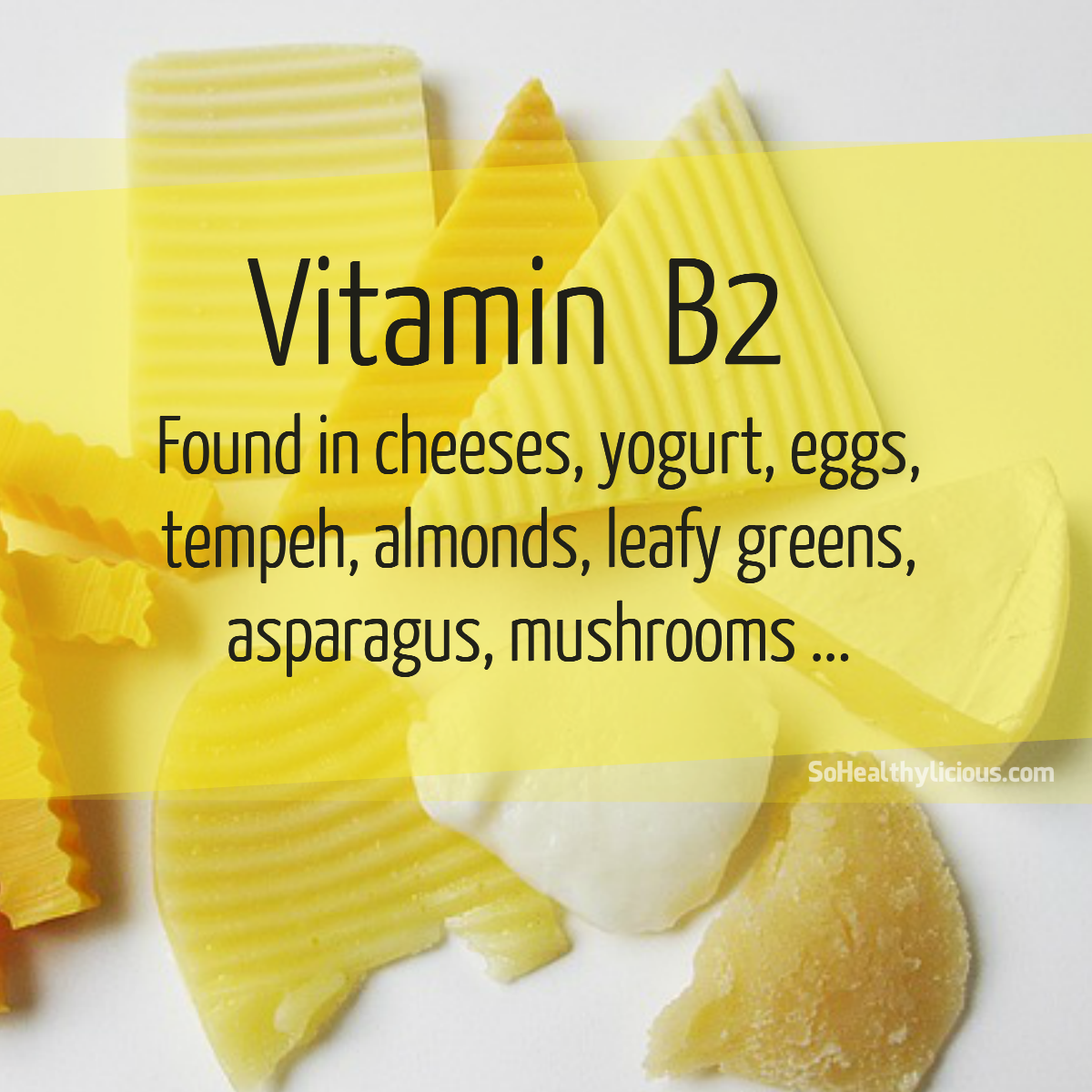
The benefits of vitamin B2 (also known as riboflavin), are many and you would do well to ensure that you get your daily intake from healthy sources. Here’s what you need to know …
Benefits of Vitamin B2
Vitamin B2, also known as riboflavin, helps to preserve the health of your skin, the lining of your digestive tract, and your blood cells.
Riboflavin is also recommended to:
- help improve immune function
- boost energy levels
- maintain healthy skin, hair and nails
- treat certain types of anemia
It is also important in producing energy and hunting down harmful free radicals by promoting the body’s recycling of the powerful antioxidant glutathione.
Therapeutically, riboflavin is associated with a lower risk of developing eye cataracts and a reduction in the frequency of migraine headaches, especially among those who take vitamin B2 supplements.
There is never any concern about getting too much riboflavin, as any excess is quickly excreted in the urine.
Vitamin B2 Food Sources
Some say that the best sources of vitamin B2 are dairy products such as milk, cheese and yogurt . But there are some non-dairy sources as well which include spinach and other greens, asparagus, eggs, and mushrooms.
Vitamin B2 Deficiencies
Riboflavin deficiency shows up as painful inflammation and skin rashes on the tongue, throat, lips, corners of the mouth and genitalia. Other signs you’re not getting enough riboflavin include itchy, bloodshot eyes and anemia.
Because it is removed during the milling process, vitamin B2 is included in enriched flour products in the United States and other countries. This helps to prevent deficiency in places where enriched flour is widely used.
Riboflavin is damaged by exposure to light. So make sure to store dairy foods and other foods high in riboflavin in opaque containers to protect this important nutrient and get the most value from your food.
Did You Know?
An interesting fact about riboflavin is that vitamin B2 supplements will turn urine bright yellow. In fact, the “flavin” part of the word riboflavin comes from the Latin word for yellow, flavus.
Have you ever noticed that eating asparagus will turn your urine yellow? Asparagus is rich in riboflavin.
Riboflavin is even used as a food coloring because of its distinctive yellow color. And because it is fluorescent under UV light, riboflavin is used in some industrial applications to detect leaks.
Getting Some B2 On-the-Go
For a fast, easy serving of vitamin B2 … have a cup of yogurt or grab a handful of almonds.